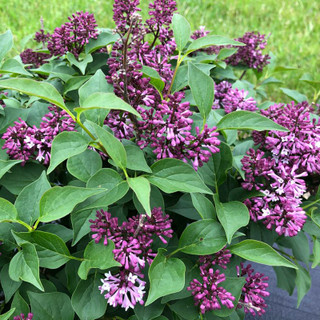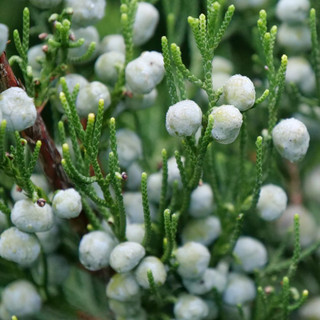
Indian Hawthorn
Uses:
- Flowering Hedges
- Containers & Planters
- Wildlife Gardens
Features:
- Evergreen Foliage
- Produces Berries for Birds
- 4 Seasons of Interest
Sunlight:
- Partial Shade to Full Sun
- 5+ Hours of Direct Sun
Growing Zones:
- 7-11
- What is My Zone?
Indian Hawthorn shrubs are fantastic for southern states with warm climates. The evergreen bushes provide year round interest with pretty flowers, berries and foliage that stays all winter.
Why Buy Indian Hawthorn Online
Indian Hawthorns are an evergreen shrub in the Rosaceae family. They are small flowering bushes or sometimes trees. The branches are purplish brown when younger and turn greyish brown as the plant gets older. In the spring, small clusters of pink or white flowers appear and transition to small purple or bluish fruits that are attractive to birds. The berries are edible when cooked and can be made into jam.
Great as a flowering hedge
Compact evergreen with pink and white flowers
3 to 6 feet tall & wide
Growing zones 7 to 10
About Indian Hawthorn

Indian Hawthorn, Hawthorn, Indian Hawthorn Shrub, Hong Kong Hawthorn
India, China, and Taiwan
Bushes
Evergreen
7 to 10
Pink, White, Red, or Lavender
Spring
Compact, rounded, bushy growth with a height of 3–6 feet (0.9–1.8 meters) and a similar spread
Bees, butterflies, and other pollinators
Drought, salt, pollution, and poor soils
Deer, drought, and pests
How To Use Indian Hawthorn In The Garden
Indian Hawthorn (Rhaphiolepis indica) is a compact evergreen shrub, typically reaching 3 to 6 feet in height and width. In spring, it produces abundant clusters of small, fragrant white or pink flowers, followed by dark blue berries that persist into winter, providing visual interest and attracting wildlife. The plant's leathery, oblong leaves emerge with bronze tints, maturing to a deep green, and maintain their color year-round.
Its natural mounded growth habit makes it popular for use as a low hedge or foundation planting. Some gardeners prune it into a small ornamental tree or bonsai specimen. Indian Hawthorn's salt tolerance allows it to thrive in coastal landscapes, and it performs well in containers, either alone or with coordinating spiller and filler plants. Additionally, its dense foliage and attractive blooms make it an excellent option for mass plantings or mixed borders.
Indian Hawthorn Care
Plant Indian Hawthorn in early spring, selecting a location with full sun to partial shade. Space shrubs far enough apart to accommodate their mature size. Although adaptable to various soil types, Indian Hawthorn requires well-drained soil. Maintain evenly moist soil until the shrub is established; once mature, it exhibits some drought tolerance. A spring application of all-purpose, slow-release fertilizer supports new growth.
Prune Indian Hawthorn after the spring bloom to remove damaged or diseased stems, maintaining its natural mounded shape. Avoid pruning within two months of the first expected frost to prevent cold damage to new growth. When growing in containers, choose pots with drainage holes and use a quality potting soil mixed with perlite. Position containers in full sun to partial shade, water thoroughly when the soil dries out, and reduce watering during cooler months.
Learn More About Indian Hawthorn Care

Indian Hawthorn Companion Plants
Plants that go well with Indian Hawthorn shrubs can be hardy and salt tolerant shrubs, perennials and annuals. A few of our favorites to pair with Indian Hawthorn are hollies, junipers, crape myrtles and lilacs.









